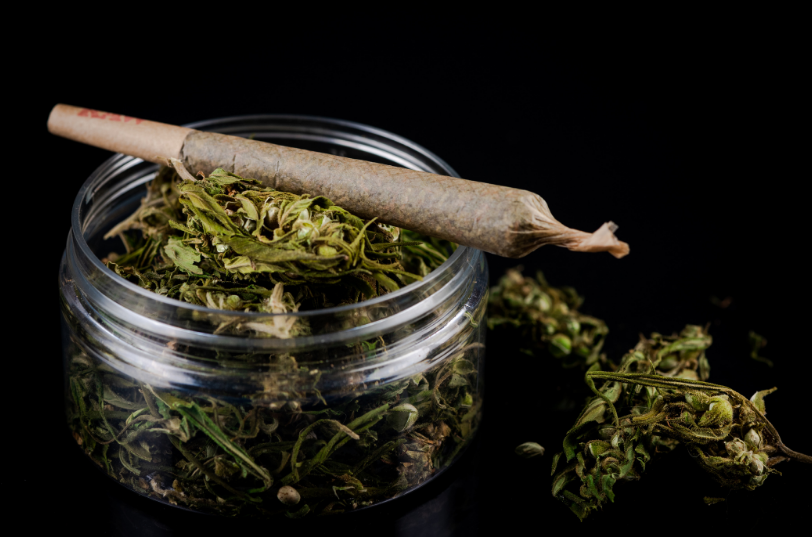What are the long-term effects of weed? This question is quite common, especially since rapid legalization of this drug has begun in the US. Colorado and Washington legalized recreational usage of marijuana in 2012. In the almost decade since then, a total of 18 states plus Washington, D.C. allow marijuana to be sold to adults age 21 and over in licensed dispensaries. Many more states are expected to follow suit.
Acceptance of marijuana smoking and products has come a long way in the past few generations. What has not changed is the misconceptions many have about it. This includes the idea that marijuana usage has little to no downside. If you are wondering what are the long-term effects of weed use, we have some answers.
Can You Become Addicted to Marijuana?
According to the Centers for Disease Control and Prevention (CDC), one in ten people who smoke pot will become addicted. When a person begins usage under age 18, one in six develops an addiction. The CDC report also states that approximately 22 million people smoke pot each month. This makes it the most commonly used narcotic in the country.
The National Institute on Drug Abuse reports that 3 out of 10 people who smoke pot develop a marijuana use disorder. Youthful beginnings come into play again with these statistics. Those who begin smoking pot under the age of 18 are four to seven times more likely to end up with a marijuana use disorder.

Addiction to marijuana shares a similarity to that of other drugs. Constant and heavy usage builds a reliance in the brain. Tetrahydrocannabinol (THC) is the active ingredient in marijuana. It mimics the endocannabinoids naturally produced by the human brain. The brain begins to rely on THC for this purpose. As with all drugs, when withdrawal symptoms take place, an individual often begins using the drug again in order to avoid them.
Studies conducted to answer the question of what are the long-term effects of weed use sometimes cause debate. Many people rely on a strict definition of addiction, as it relates to drugs like heroin or cocaine. What they may leave out concerns the fact that a person can be dependent on marijuana without being physically addicted. Even in these cases, many people find it difficult or impossible to stop smoking pot. They require professional treatment programs to help them stop their dependence on marijuana and recover from it.
What Are The Short-Term Effects of Weed Use?
The consequences of smoking marijuana are typically experienced within minutes and can persist for several hours. Common effects include a faster heart rate, dry mouth, red eyes, difficulty with memory and focus, and an enhanced desire for food, sometimes referred to as “the munchies.” In some people, marijuana use may induce nervousness, fear, and even hallucinations. Furthermore, smoking marijuana on a regular basis can cause respiratory problems such as bronchitis or lung infections.
Additionally, marijuana’s impairment of coordination and reaction time can increase the likelihood of accidents or injuries, particularly when someone is driving or using heavy machinery. It is noteworthy that the potency and effects of marijuana can be quite diverse, depending on the strain and how it is ingested.
What Are The Long-Term Effects of Weed Use?
Despite what people may believe, marijuana use carries serious long-term effects. The following are a few of the main physical and psychological issues that arise long-term.
Effects on the Brain
Marijuana usage can cloud a person’s ability to think. Simple tasks may seem more arduous. The long-term effects of weed use include negatively impacting the brain’s ability to learn, make decisions, and react quickly. Oftentimes, short-term memory is affected after smoking marijuana.
Teenagers and children who smoke weed are especially susceptible to this sort of injurious impact due to their brain being in the still-developing phase. Smoking pot while pregnant can cause developmental problems in babies. Marijuana-related toxins can also be passed to an infant during breastfeeding.

Effects on the Lungs and Heart
Constant marijuana usage can affect the lungs and heart. Many pot smokers develop chronic coughs, breathing problems, and cold-like symptoms. People who regularly smoke weed may increase their chances of having an irregular heartbeat, a heart attack, and acute coronary syndrome.
Psychological Effects
The old adage about not operating heavy machinery when using certain medications often applies to smoking weed. Anything from power tools to gardening machinery to driving a car can become dangerous when a person has smoked pot first. The ability to perceive time passage often becomes affected. What feels like a short or lengthy amount of time might actually be the opposite. Long-term use of marijuana may cause an increased risk of psychosis or schizophrenia in some people.
Smoking pot often leaves a person feeling lethargic and sleepy. They also may incur red, bloodshot eyes. A lot of people report feelings of paranoia and anxiety when they smoke marijuana.
Today’s Marijuana Is More Potent Than Past Kinds
People from the Woodstock generation often say that the marijuana they smoked is not nearly as powerful as what’s available today, and they are correct. Even thirty years ago, the average THC content in pot was less than 4%. As recently as 2018, that number rose to more than 15%.
Marijuana concentrates may contain even higher levels of THC. Cannabis concentrates are created from microscopic, hairlike compounds called trichomes that cover cannabis plants. Concentrates can be made at home or in a commercial setting. They contain particularly high levels of THC. With higher levels comes an increased risk of dependence and addiction.
Withdrawal Symptoms Can Occur
When answering the question of what are the long-term effects of weed use, the subject of withdrawal symptoms must be addressed. When a person who has smoked weed regularly cuts back significantly or stops usage, the following physical symptoms may occur:
- Nausea
- Headaches
- Sleep disturbances
- Decrease in appetite
- Sweating
- Chills
- Cravings for the drug
Psychological dependence on regular marijuana usage can result in feelings of depression, anxiety, panic, mood swings, and irritability.

Can You Overdose on Weed?
Yes, it is possible to overdose on marijuana. However, a marijuana overdose is different from an overdose of other drugs in that it is not lethal. The active ingredient in marijuana, delta-9-tetrahydrocannabinol (THC), can cause overstimulation of the brain and central nervous system. Symptoms of a marijuana overdose include:
- Increased heart rate
- Nausea and vomiting
- Anxiety or paranoia
- Hallucinations
- Confusion
- Panic attacks
- Uncontrollable shaking or seizures
- Coma (in extreme cases)
Although an overdose of marijuana is not fatal, it can still be an unpleasant and alarming ordeal. It is essential to consume marijuana responsibly and to be aware of the possible hazards and side effects. If you or somebody you know is going through the signs of a marijuana overdose, it is important to consult a medical professional right away.
Treatment Options for Marijuana Addiction
Treatment for marijuana addiction can take several forms and is tailored to each individual’s specific wants and needs. The most common treatment options include:
Residential Treatment
Residential treatment necessitates living at a rehabilitation center where the individual is monitored around the clock. This form of therapy is beneficial for those with serious addiction issues who need a controlled and secure atmosphere to fight their addiction. In residential treatment, the patient engages in one-on-one and group counseling sessions, as well as recreational and educational activities.
Partial Hospitalization Program (PHP)
Partial hospitalization programs (PHP) provide a less intensive option to inpatient treatment, granting individuals a few hours of therapy and treatment daily and then allowing them to go back to their homes in the evening. This type of care is fitting for people who need a secure and supportive atmosphere but don’t necessitate 24-hour attention.
Intensive Outpatient Program (IOP)
Intensive outpatient (IOP) programs are designed for those who need help in their recovery but are not able to commit to a residential or partial hospitalization program. This type of program usually requires a few hours of therapy and treatment each week, so those undergoing treatment can still maintain a job or go to school.

Outpatient Treatment
Treatment on an outpatient basis is the least stringent form of care and usually involves repeated counseling meetings with a therapist or counselor. This form of therapy is optimal for people with a mild to moderate dependency who can stay on track with their regular daily activities while undergoing rehabilitation.
Marijuana Addiction Treatment in Los Angeles
If you have developed a marijuana use disorder, we can help. Launch Centers treats substance use disorders with a combination of clinical and holistic treatment plans. Our long-term programs in Los Angeles offer many options to suit your needs. Call Launch Centers today to find out how we can help you get your life back on track.





